Air compressors are not only one of the most versatile pieces of equipment you can use, but they can also be one of the most energy efficient, too. In fact, a common thermodynamic fact is that the vast majority of electrical energy an air compressor uses is converted into excess heat.
Even if you aren’t familiar with physics, you will probably have heard of the principle of the conservation of energy: energy cannot be created or destroyed, only changed.
Not only are modern air compressors efficient, but almost all the heat energy that could be lost, often called waste heat, can be recaptured through heat recovery for air compressors. An air compressor heat recovery system does just this: it captures this valuable thermal energy so you can reuse it elsewhere.
Heat recovery systems can save you money, help the environment, and can even lengthen the life of your air compressor.
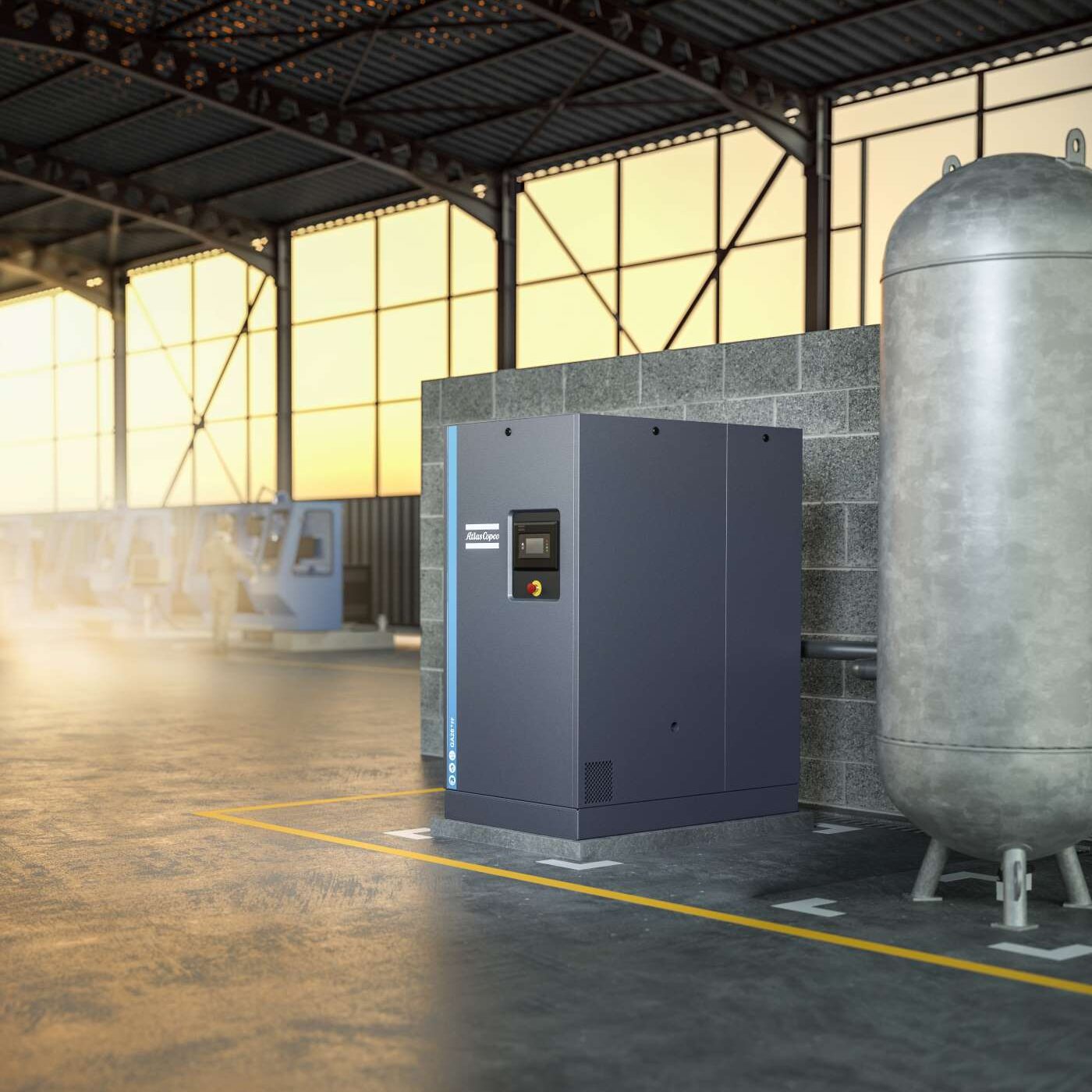
Why Heat Recovery?
When compressed air is created, most of the electrical energy consumed is converted into heat, which can be captured using an energy recovery system. Industry leaders like Atlas Copco estimate that 70-94% of this energy can be reclaimed, providing significant benefits.
One major advantage is huge costs savings. Using the recovered heat for tasks like producing hot water to 70°C or space heating reduces the need for additional fuel sources, such as fuel oil or natural gas, leading to lower operating expenses. Many facilities see a return on investment (ROI) within one to three years, with payback periods that can be surprisingly short.
Heat recovery also contributes to sustainability by reducing CO2 emissions and the overall carbon footprint of your operation. In the UK, the widespread adoption of heat recovery could cut industrial energy consumption by nearly 2%, equivalent to the energy use of over 1.5 million households.
Additionally, an air compressor heat recovery system can enhance the efficiency of your equipment. By managing excess heat—especially in rotary screw or oil-free compressors—you reduce wear and tear, lowering life-cycle costs and extending the lifespan of your compressors.
Types of heat recovery
Heat recovery in air compressors primarily involves two methods: air heat recovery and water heat recovery, each with distinct benefits. The best method often depends on your compressor's cooling medium (air or water) and your facility's needs.
Air Heat Recovery
Air heat recovery captures the warm air (hot air) generated during compression, often reaching temperatures suitable for space heating or industrial processes like drying. This method, particularly effective with oil-free compressors where the air is clean, helps reduce the need for additional heating sources and enhances energy efficiency. The hot air is simply ducted to where it's needed, like a workshop or warehouse.
Water Heat Recovery and Heat Exchangers
Water heat recovery uses a heat exchanger to transfer the compressor's exhaust heat to water, heating it up to 70°C or even 90°C. This hot water can be used for production processes, sanitation, or a central heating system, significantly lowering energy costs. For fluid-injected rotary screw compressors, the system uses the hot coolant (oil) to efficiently dissipate heat and repurpose it, leading to substantial savings.
The heat exchanger is the core component here. Whether you are using a plate heat exchanger or a tube shell design, the efficiency of the transfer determines your recovery rate.
Choosing the Right System
The best heat recovery method depends on the compressor's make,whether it is a piston, rotary screw, or centrifugal unit, and specific facility needs. Consulting with experts can ensure that the design maximises energy savings and operational efficiency.
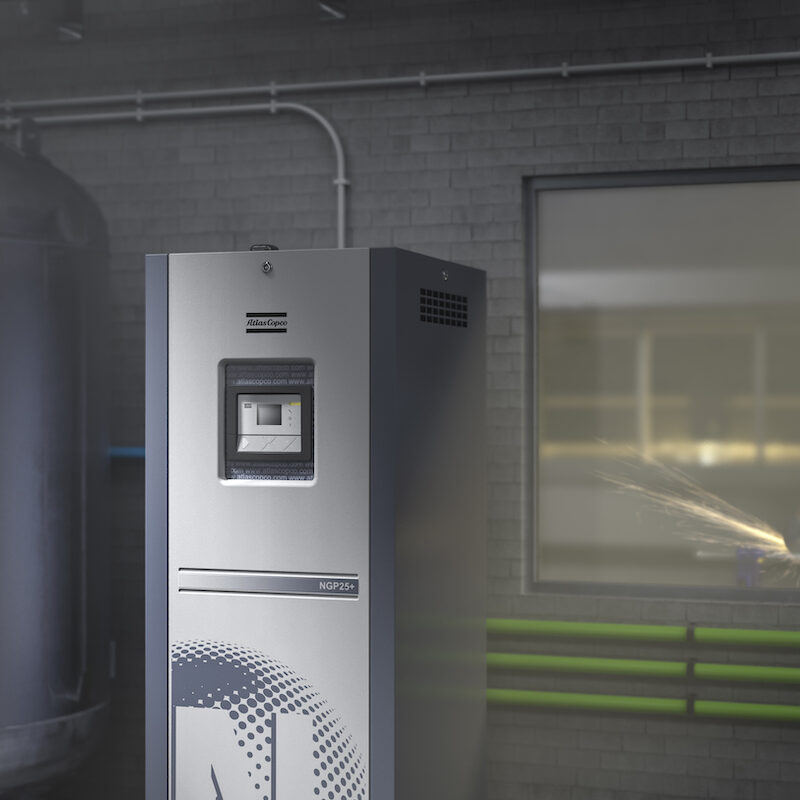
Practical Applications for Recovered Heat
Once captured, this energy can be used in several highly practical ways, directly offsetting your fuel costs.
Space Heating
The simplest application is using the recovered heat for direct space heating. The warm air from the air compressor can be ducted into workshops, warehouses, or loading bays, reducing the load on your existing heating system or hot water boilers.
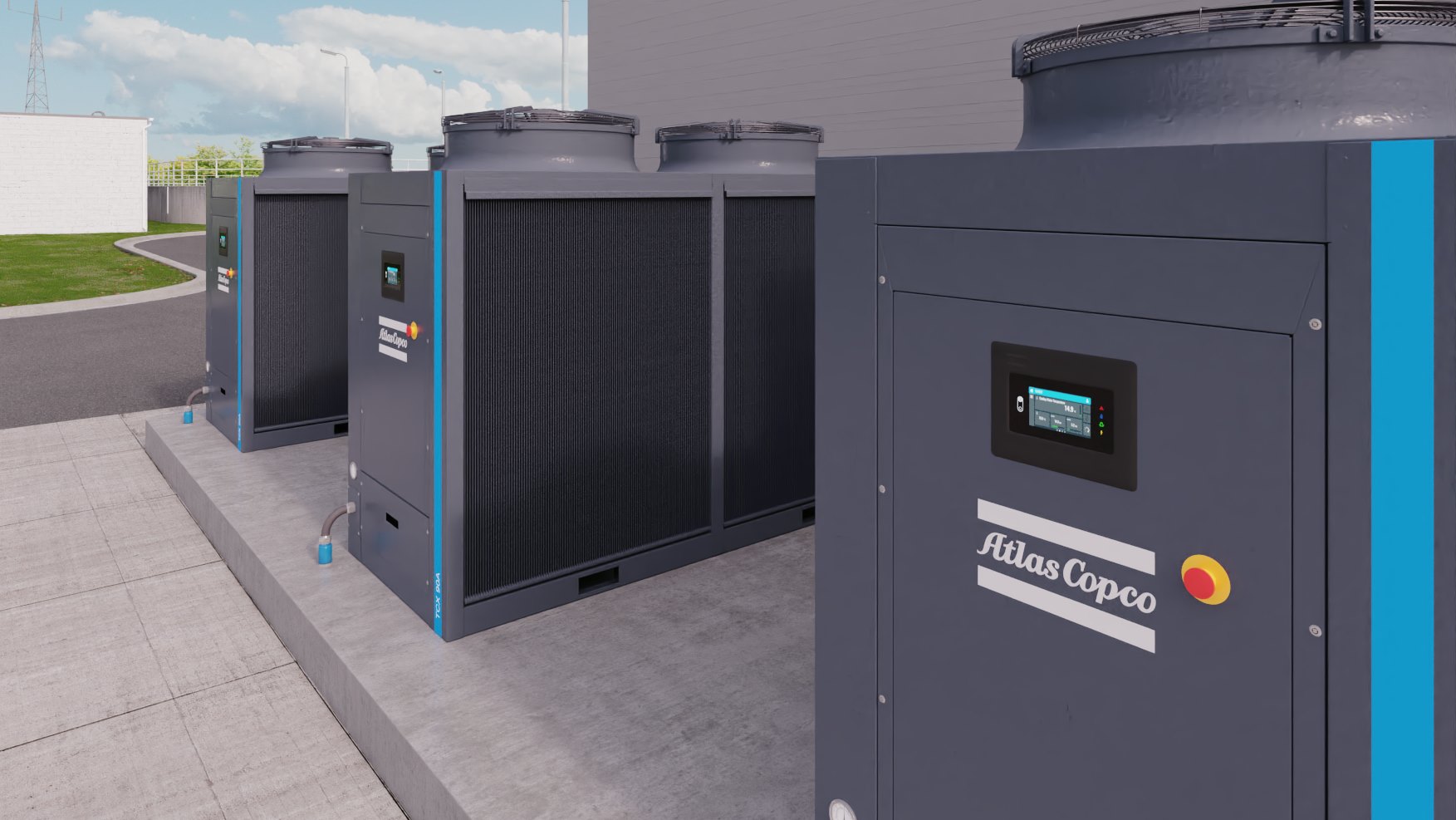
Water Heating (Process & Sanitary)
This is one of the most common and effective uses. The recovered heat is perfect for:
- Pre-heating boiler feedwater: Sending warm water to your boiler, rather than cold, dramatically reduces the gas or oil needed to produce steam.
- Process Water: The hot water can be used in production, such as for wash-downs, cleaning-in-place (CIP) systems, or parts washing.
- Sanitary Water: It can supply hot water for employee showers, kitchens, and washrooms.
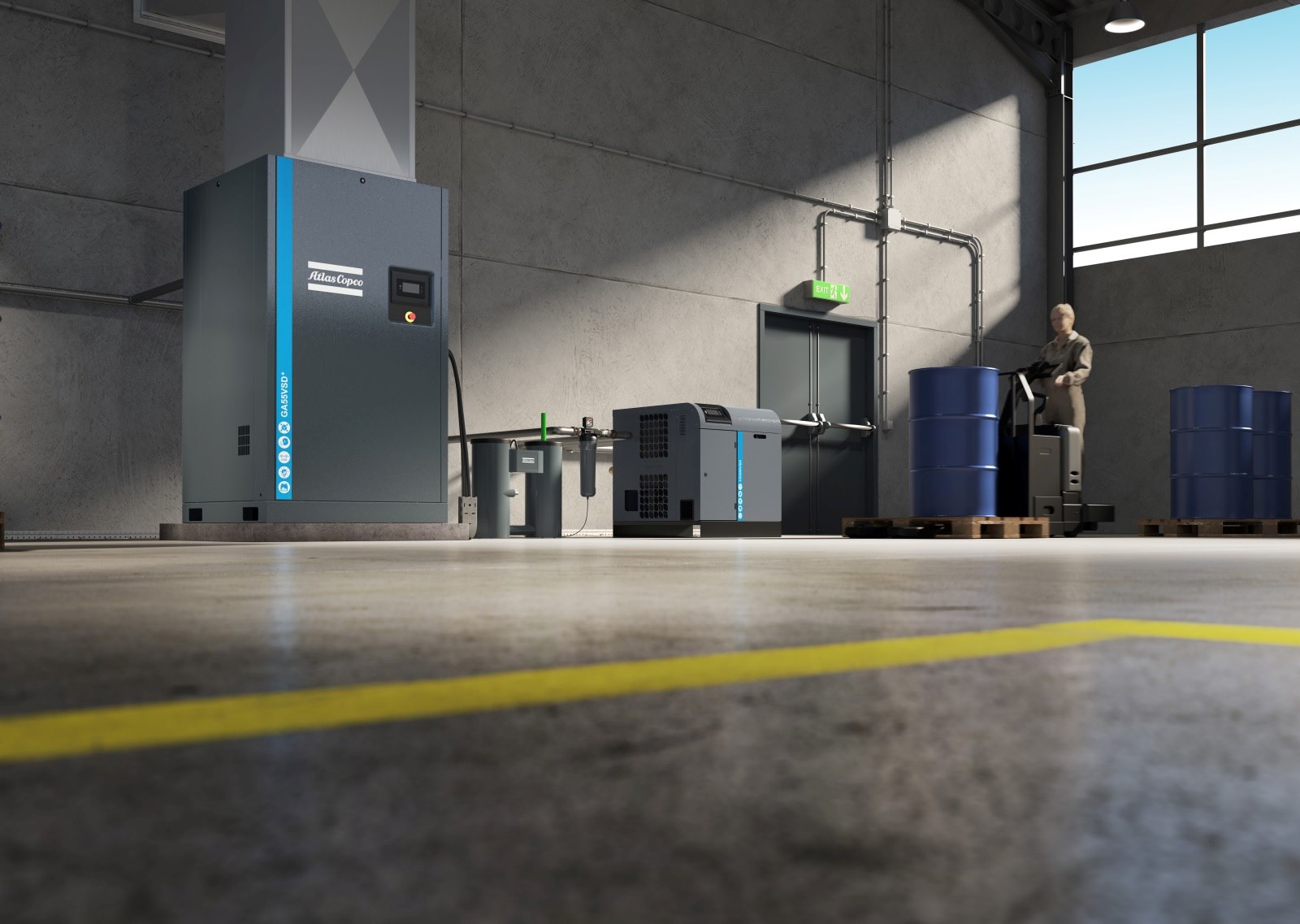
UK Compliance and Sustainability
Implementing a heat recovery system is not just a cost-saving measure; it's a key part of a modern energy management strategy. For UK businesses, this directly supports compliance with major regulations:
- ESOS (Energy Savings Opportunity Scheme): A heat recovery project is a high-impact, reportable action that demonstrates a clear commitment to energy efficiency.
- SECR (Streamlined Energy and Carbon Reporting): By reducing your gas and electricity consumption, you directly lower your reported carbon emissions, helping you meet SECR requirements and corporate sustainability goals.
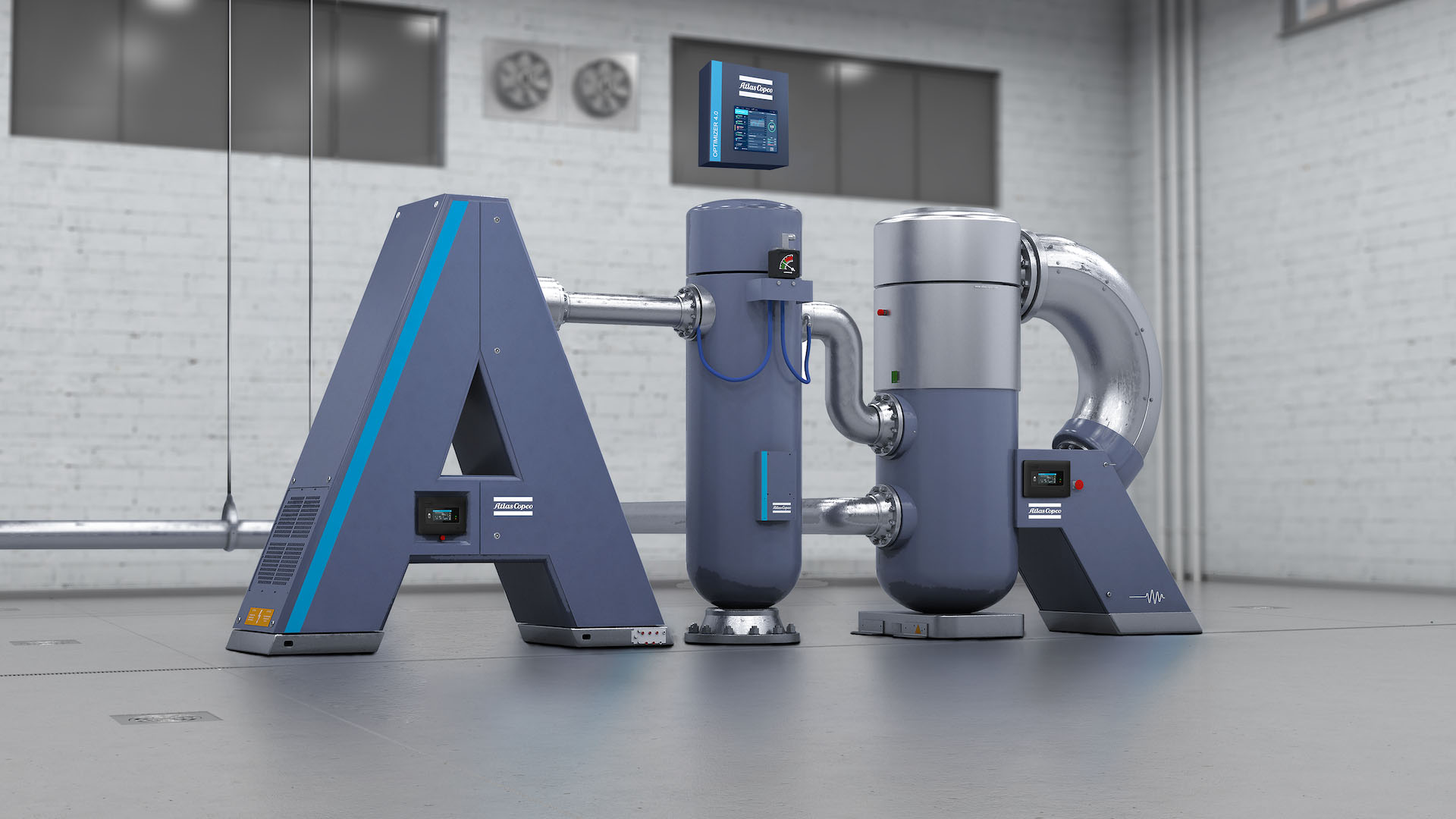
How to start with heat recovery
Implementing heat recovery technology can be remarkably easy, but correct installation is key to performance.
With a new compressor
If you are getting a new compressor, or replacing an old one, there’s a good chance that it will come ready for heat recovery, with the compressor’s cooling system and other components ready for connection to begin heat recovery. Many modern units, like those from Atlas Copco, offer fully integrated energy recovery modules.
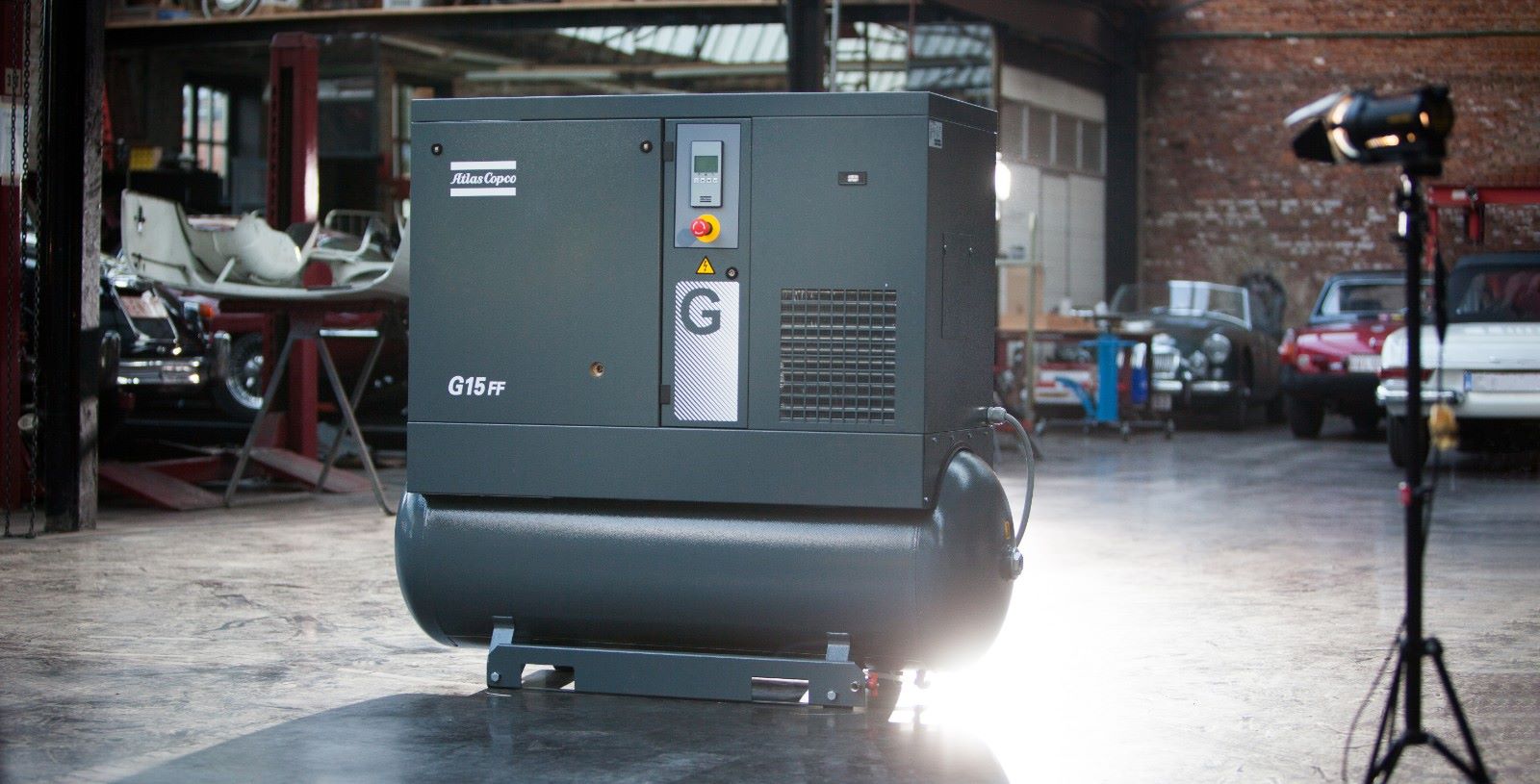
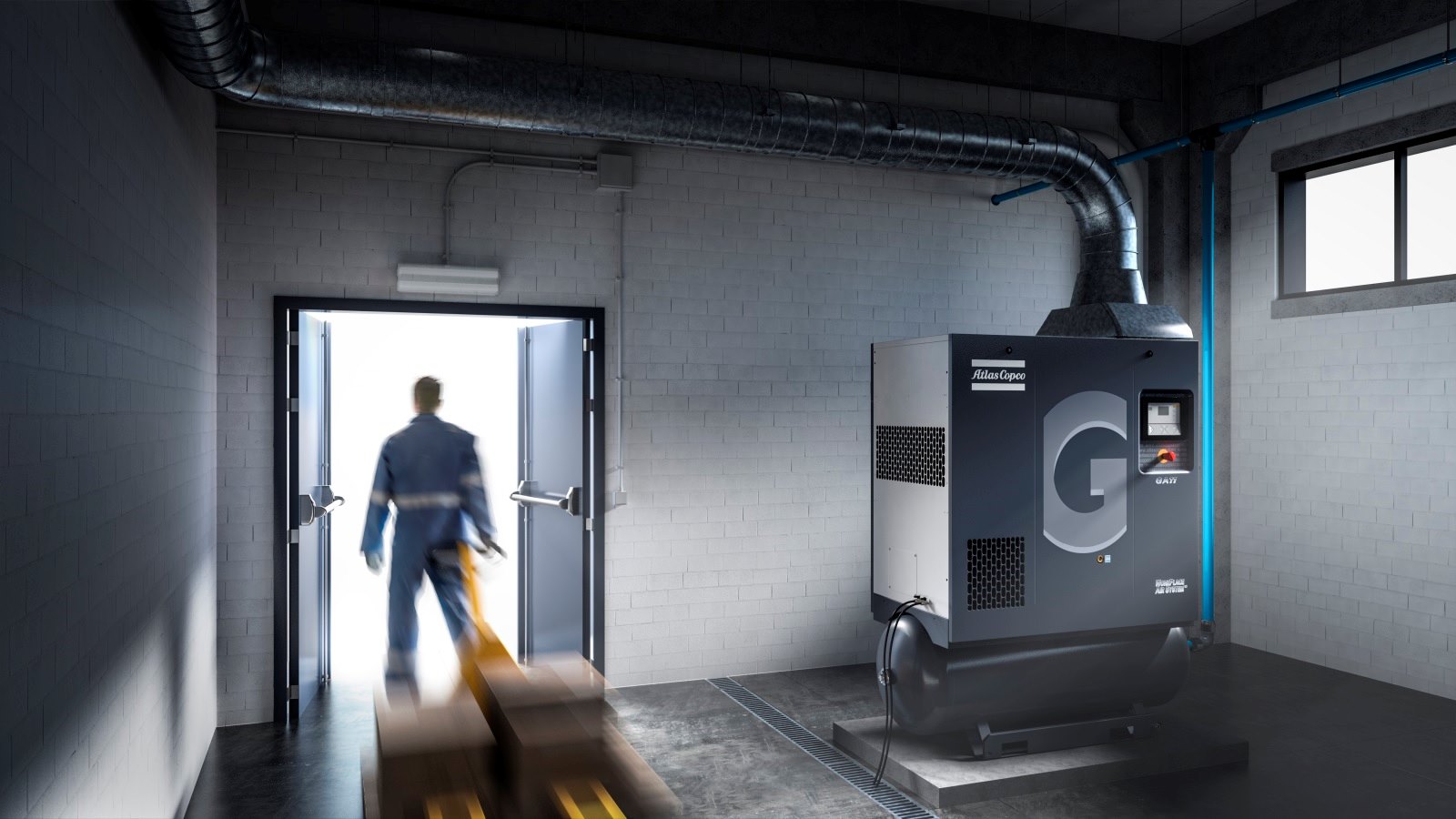
With your existing compressor
How heat is recovered will depend on your compressor. If you have an air-cooled compressor, heat recovery is relatively simple, meaning that it can be worthwhile to install a heat recovery system even on small compressors.
Water-cooled systems may need additional components installed, such as pumps and heat exchangers. However, most air compressors can be retrofitted, regardless of the make of compressor, and the payback time can be surprisingly short.
Calculating Savings and Load
Before installing a system, it is vital to calculate the potential heat load.
How to calculate heat load of air compressor?
To estimate the potential savings, you can use a simple formula based on the compressor's power rating and running hours. Roughly 80% of the shaft power of the compressor is convertible into reusable heat.
Formula:
(Compressor kW) x (Annual Running Hours) x (Energy Price) x 0.80 = Potential Savings.
For example, a rotary screw compressor running 4,000 hours a year represents a massive reservoir of energy waiting to be tapped.
Our Expertise with Atlas Copco and Other Major Brands
As a leading UK distributor and service agent, Anglian Compressors, a Branch of Atlas Copco Compressors, has deep expertise in designing and installing heat recovery solutions. We are specialists in Atlas Copco's advanced energy recovery units, which are renowned for their efficiency and integration.
Our technical team can also expertly retrofit systems onto all other major brands, including Kaeser heat recovery systems, BOGE, Ingersoll Rand, and more. We ensure the design is right for your specific setup to maximise your savings.
Start recovering energy from your compressor
Putting it bluntly, although compressed air is vital for many industries, it does not make sense to lose up 94% of the energy costs of producing it.
Heat recovery can be a simple and straightforward way to recover most of the energy used for compression, so that energy can be used elsewhere. Heat recovery can slash your bills and drastically reduce your carbon footprint.
Whether it’s a new compressed air system or a retrofit to your existing compressor, Anglian Compressors, a Branch of Atlas Copco Compressors, can help. We’ve been providing and installing, servicing and maintaining compressors for almost fifty years, and we simply cannot begin to count how much we have saved our customers by making sure they are getting as much out of their compressor as they can.
Get in touch today, we can help you consider your options, and begin a process that will help you save money, and the planet.
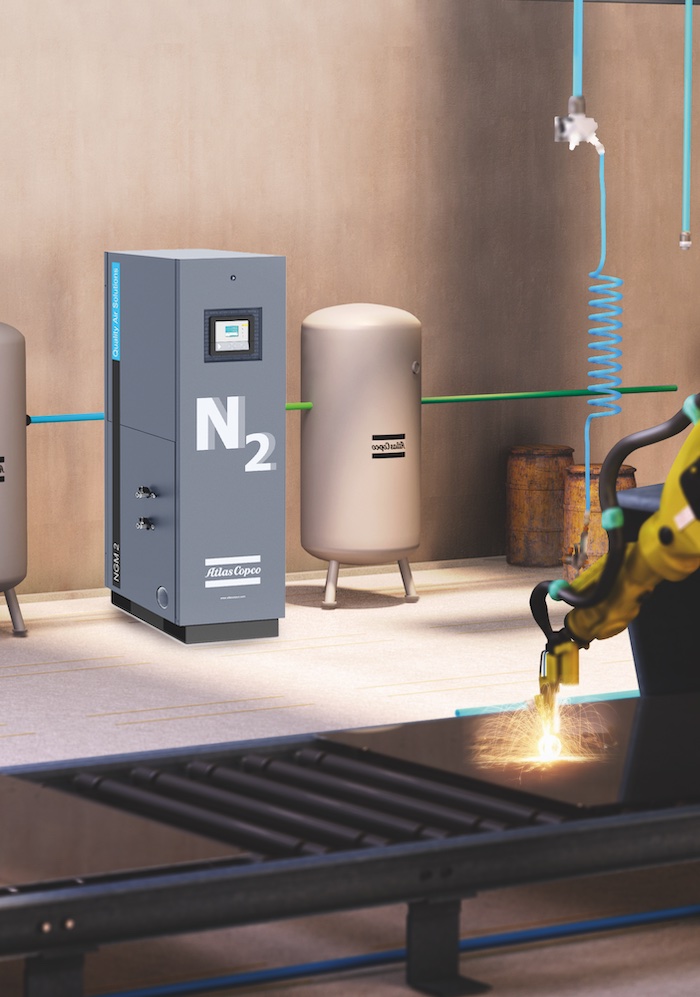
Frequently Asked Questions about Heat Recovery for Air Compressors
Heat recovery is the process of capturing the excess heat generated during compression. Up to 70-94% of the total electrical energy used in air compression can be recovered as heat, according to experts like Atlas Copco UK.

